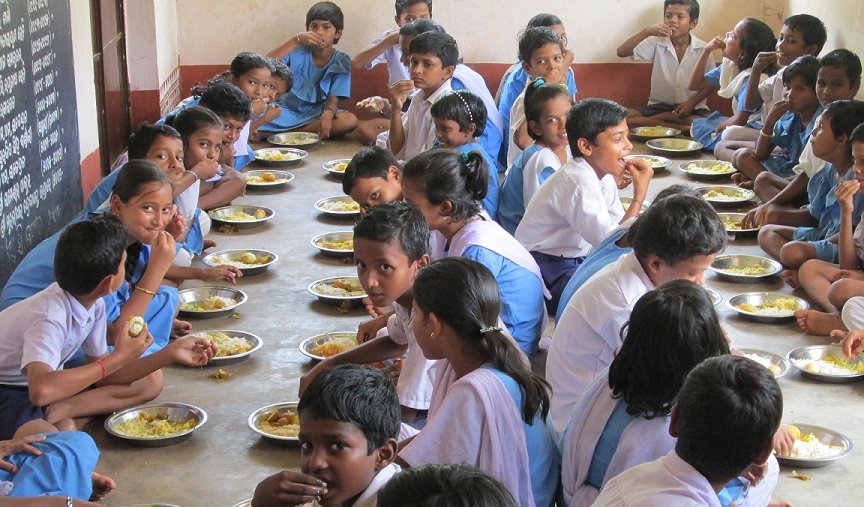POLITICS OF FOOD
The debate over whether mid-day meals should be vegetarian or non-vegetarian has become part of the larger politics around food in the nation. The Odisha government plans to serve eggs as part of the mid-day meal but will it receive a national resistance?
Kalyani Chandrashekar is a Writer and Nutritionist – based in Maharashtra.

In India food has always been a part of the political culture of the society and thus it is not surprising that far from being a personal affair, the choice of food is a political statement. Who can deny the fact that in India, one of the most important dinner table conversations is about whether it is vegetarian food that is more beneficial to the body or we should have non-vegetarian food.
There are strong advocates on both sides who will go to any extent to assert that non-vegetarian/ vegetarian food is better/ moral/healthy and pure. This debate over food became particularly asserted in the recent years when the politics of beef eating led to a large section of the population being lynched, rumours based on particular food practices of the minorities being politicized and communal hatred being generated, we are also familiar with the age old debate generated by scholars like Kancha Illaiah and D.N. Jha which spoke about how the custom of eating beef was central to the Hindus and why believing otherwise is ahistorical.
Food is thus a political statement and people have used food to assert their political ideologies, customs and world perspectives. The debate over food has entered our schools also as the mid-day meals served in government schools across India have become subject to the debate over vegetarian versus non-vegetarian food. Amidst this debate, the government of Odisha has recognised that for a large section of the children attending these schools, the mid-day meal is the only ‘proper’ meal of the day and the addition of an egg would add to its nutritional value. However, this decision faced a major backlash from the Akshaya Patra Foundation that provides food to most government schools in the nation. Being strongly related to the ISKON Society, the foundation strongly upholds vegetarianism and is strongly against the idea of feeding eggs to the children. The Foundation has been serving the mid-day meals in Odisha for the last twelve years and the state government’s appeal to serve eggs has been dealt with in a creative way.
The Foundation which provides mid-day meals to 1, 76,000 rural schools across the nation does not offer fish, eggs, chicken to the children. Recently, the Foundation declined Karnataka Government’s appeal to include onion and garlic in the food to make it tasty. But recently, the Foundation has agreed to serve the children two eggs a week in Odisha. However, according to the arrangement- the schools will buy and boil the eggs on their own and the Foundation will bear the cost. The Akshaya Patra Foundation is known to have three centralised kitchens in Puri, Cuttack and Rourkela and one decentralised one in Nayagarh. It is under the Integrated Child Development Scheme that Odisha government provides five eggs in a week to the children below six years in the anganwadis and two eggs per week to children in government run schools. Nutritionists also asserted that in rural and tribal areas it might not be very convenient to give nutritious food and therefore when an egg is added to the meal, it attracts children to the school. It is worth noting here that the Odisha government was able to negotiate with the providers of the mid-day meal schemes and offer nutritious food to children.
It is also important to acknowledge that in a culinary paradise like India, different regions and different communities have diverse food practices and to impose only one particular diet on all-is unjust. The inclusion of eggs twice a week along with milk and fruit will enable children to have a balanced diet and come to school regularly.
It is also the time to reflect on the issue of India’s obsession with food politics and allow people to relish and eat the food that is both good for the body and in tune with their cultural moorings.














